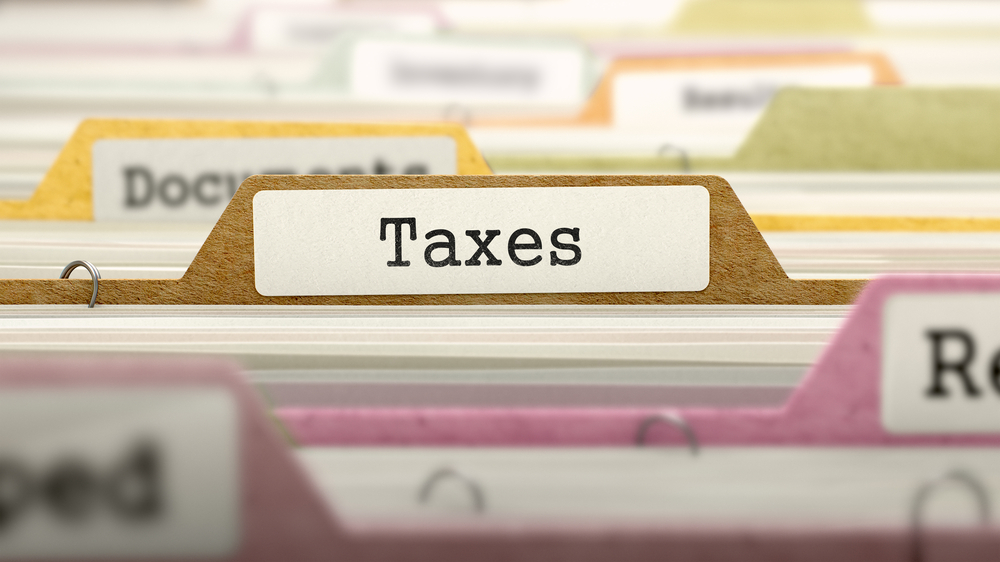Taxes & Financing

State and Local Taxes
Colorado's corporate tax system has been recognized as one of the best in the country, placing 10th in the Tax Foundation's 2021 State Business Tax Climate Index. With a 4.55% flat corporate income tax rate on Colorado net income, which includes modifications to the corporation's federal taxable income, Colorado offers an attractive environment for businesses.
Income Apportionment Method
Colorado's single-factor method streamlines its corporate income tax system. This approach utilizes a single-factor apportionment, which taxes a company's sales exclusively within the state of Colorado.
Prior to the introduction of the single-factor method, taxpayers had to choose between the standard three-factor formula (based on wages, property, and sales) or a specialized two-factor formula (based on property and sales) each year.
Unitary Taxation
Colorado takes a "water's edge" approach to unitary taxation rather than a "worldwide" approach. This means that foreign corporations and "80/20" corporations (corporations with 80 percent of their property and payroll outside the U.S.) are not included in a Colorado income tax return. However, businesses operating in Colorado, as well as other states, are required to allocate a portion of their net income derived from sources within Colorado.
Colorado has a 4.55% flat tax on an individual's federal taxable income, making it one of only nine states with a single-rate tax structure.
As most small businesses are either S Corporations, partnerships, or sole proprietorships, these businesses pay the individual tax rate for their business taxes. Colorado's low individual income tax rate results in an extremely competitive tax environment compared to other states for small businesses.
Business Real Property Tax
Colorado ranks among the top-10 states (10th) for best corporate tax system according to the Tax Foundation's 2021 State Business Tax Climate Index. Property Tax Assessment Rates Colorado property taxes have three main components: the actual value of property, the assessment rate, and the mill levy. Local assessors establish the actual value of the property and the property's classification (residential, commercial, or personal).
The Colorado Legislature determines assessment rates, and local taxing entities determine mill levies. The assessment rate for commercial and industrial property is set at 29% of market value. The residential rate is adjusted every odd-numbered year in order to maintain a balance between the tax burden on residential and all other properties.
- Residential - 7.2%*
- Commercial - 29%
- Industrial - 29%
- Personal: 29%
- Mixed-use - 7.2% for residential proportion, 29% for commercial
- Vacant land - 29%
- Oil and gas leaseholds and lands (primary production) - 87.5% of oil or gas sold or transported from premises, with modifications
- Oil and gas leaseholds and lands (secondary production) - 75% of oil or gas sold or transported from premises, with modifications
- State assessed property - 29%
- Exempt Property Assessed at appropriate rate, but not taxed
*Residential assessment rate fluctuates from year-to-year
Business Personal Property Tax
Business personal property (machinery and equipment) used in commercial and industrial operations is also assessed at 29% of actual value, based on replacement cost, expected economic life of the asset, and other factors. Business personal property with an economic life of one year or less, or with acquisition cost of $350 or less, is exempt from taxation. Computer and telecommunications equipment have accelerated depreciation schedules and reduced residual values.
Routt County Treasurer's Office is responsible for the billing, collection, and distribution of real and personal property taxes for the various tax authorities in Routt County. Local tax rates vary based on the location and taxing district or authorities involved, such as:
- Local governments
- School districts
- Police and fire protection districts
- Water and sewer districts
- Public library districts
- Recreation districts
- Hospital districts
- And others
Taxes are calculated by the assessment process conducted by the Routt County Assessor and the total mill levies applicable by the relevant taxing districts or authorities. The Assessor determines the value of all real and personal properties for tax purposes, which is then used by the taxing districts or authorities to establish their respective mill levies. A mill represents 1/10th of a penny or generates $1 in revenue for every $1,000 of assessed valuation.
The State of Colorado imposes sales tax on retail sales of tangible personal property. In general, the tax does not apply to sales of services, except for those services specifically taxed by law.
The Colorado Department of Revenue administers not only state sales tax, but also the sales taxes imposed by a number of cities, counties, and special districts in Colorado--but not all.
Learn more about sales and use taxes for each level of government:

Business Insurance
Unemployment Insurance is a fund established by law to provide benefits to employees who lose their jobs through no fault of their own. Employers are required to pay both state and federal unemployment insurance taxes on wages paid to all employees, including corporate officers.
The Unemployment Insurance rates vary among existing businesses depending upon tax history, benefits paid, and the Unemployment Insurance Fund balance.
Most new employers (non-construction) are charged a starting rate if 0.0170%.
All public and private employers in Colorado, with limited exceptions, must provide workers’ compensation insurance coverage for their employees if one or more full- or part-time persons are employed.
Workers’ compensation insurance coverage is paid by the employer. Employers purchase insurance coverage through a commercial insurance carrier or, if qualified, through self-insurance programs. No portion of the premium may be deducted from an employee’s wages.
Worker's compensation insurance coverage can be purchased through private insurance companies in Colorado, as well as Pinnacol Assurance, a nonprofit insurance carrier specializing in workers' compensation insurance.
Businesses rely on insurance to safeguard their investments in time, money, and resources. However, it's not just businesses that benefit from insurance coverage. Consumers can also find protection when dealing with insured businesses. In the event of any issues with goods or services, certain insurance policies can provide compensation to individuals who interact with these businesses.
When it comes to selecting insurance, business owners have numerous options to consider. They can choose from packages that cover various small business needs or opt for a customized policy tailored to their specific business requirements. It's crucial for business owners to have a clear understanding of what their policy includes.

Financing & Incentives
The Yampa Valley is home to several banks that offer a wide range of lending options. Local banks in the area not only provide commercial and agricultural loan options, but they also have the flexibility and expertise to cater to the needs of local businesses. These banks are known for their ability to adapt to the unique requirements of businesses in the Yampa Valley, offering a variety of repayment and term options, as well as fixed and variable rates.
The U.S. Federal Government offers funding and incentive programs that are available throughout the Yampa Valley. Below are a few notable programs.
SAM.gov Assistance Listings
Assistance listings are detailed public descriptions of federal programs that provide grants, loans, scholarships, insurance, and other types of assistance awards. You may browse assistance listings across all government agencies to learn about potential funding sources.
48c Tax Credit Program
Provides a tax credit for investments in advanced energy projects, as defined in 26 USC § 48C(c)(1). A project that (1) re-equips, expands, or establishes an industrial or manufacturing facility for the production or recycling of a range of clean energy equipment and vehicles; (2) re-equips an industrial or manufacturing facility with equipment designed to reduce greenhouse gas emissions by at least 20 percent; or (3) re-equips, expands, or establishes an industrial facility for the processing, refining, or recycling of critical materials.
The State of Colorado offers several programs that are available throughout the Yampa Valley.
Job Growth Tax Incentive
The Job Growth Incentive Tax Credit is a performance-based job creation incentive program that provides a state income tax credit equal to 50 percent of the FICA paid by the business on the net job growth for each calendar year in the credit period.
Strategic Fund Incentive
The Strategic Fund Incentive program supports and encourages new business development, business expansions and relocations that have generated new jobs throughout the state. In some cases, the Strategic Fund may also be able to provide support for initiatives led by nonprofit entities pertaining to key industries or regional development.
Enterprise Zone Tax Credits
Colorado's Enterprise Zone (EZ) program provides tax incentives to encourage businesses to locate and expand in designated economically distressed areas of the state.
Job Training Grant Programs
The Colorado First and Existing Industry grants are jointly administered by OEDIT and the Colorado Community College System. The state may be able to provide specific support to retain jobs or offers business-friendly tools that assist in retaining jobs (such as the Enterprise Zone Program) for this grant.
Manufacturing Sales and Use Tax Exemption
Colorado encourages manufacturers to locate their manufacturing operations in Colorado recognizing their importance in Colorado's economy. Colorado provides an exemption from state sales and use tax on purchases of manufacturing machinery, machine tools and parts.
Advanced Industry Investment Tax Credit
Helps Colorado advanced industry companies receive capital from Colorado investors.
Rural Jump-Start
The Rural Jump-Start Tax Credit helps new businesses start in or move into rural, economically distressed areas and hire new employees.
Freight Rail Tax Credit
This tax credit is aimed at incentivizing freight dependent businesses’ use of certain rail lines in Colorado, including in Northwest Colorado. OEDIT may reserve up to $5M in freight rail tax credits annually starting in calendar year 2025, and the tax credit is refundable for an amount equal to 75% of a user’s eligible costs.
Colorado's Enterprise Zone (EZ) program provides tax incentives to encourage businesses to locate and expand in designated economically distressed areas of the state.
The NLF provides loans to new or growing business in the region that create jobs or provide positive economic impact for the local economy. The categories for which the NLF makes loans include:
- Acquisition of an existing business
- Business expansion
- Start-up costs for a new or expanding business
- Purchase of business-occupied real estate
- Purchase of equipment, furniture and fixtures
- Inventory and working capital
Counties and cities throughout Colorado may offer incentives based on policies of the local jurisdiction. The type of incentives available for expanding or new companies varies by community and may include financial, technical, regulatory, and networking support, such as:
Personal Property Tax Credits - Local governments may elect to exempt up to 100 percent of locally assessed business personal property taxes, per the Save Colorado Jobs Act.
Waiver of Permit Fees - In addition to expediting the building permit process, local governments may choose to waive all or part of various permit fees.
Local Tax Abatement - Local governments may consider waiving or rebating local sales/use taxes for construction materials, personal property, and manufacturing equipment.
Low Interest Loans - Local governments may offer low interest loans or interest rate reductions on a loan for tenant finish costs, equipment, and working capital.
Training Assistance - Local governments may offer additional training assistance for qualified projects.
Employee Assistance - Local economic development organizations may offer services to assist new or relocating employees.

